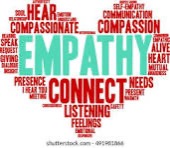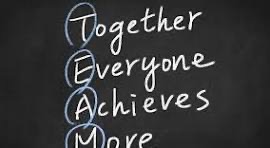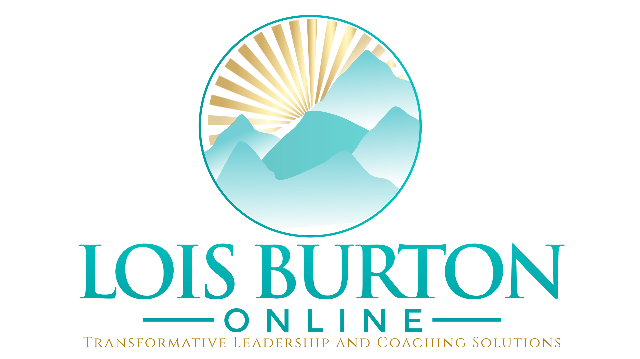Creating Confident Leaders - The Importance of Strong Working Relationships
Sep 12, 2025
The Foundation of Resilience: Why Strong Working Relationships Matter More Than Ever
From the Leadership Horizons podcast series on resilience

In today's rapidly changing business landscape, resilience has become the defining characteristic that separates thriving organizations from those that merely survive. But here's what I've discovered in my 24 years of coaching senior leaders and executive teams: resilience isn't just about individual grit or personal strength. It's fundamentally about the quality of our relationships.
Strong working relationships form the bedrock of resilience, both for individuals and entire organizations. When pressure mounts, when uncertainty strikes, when the ground shifts beneath our feet, it's not our strategies or systems that carry us through first—it's our people.
A Story of Transformation
Let me share a story that perfectly illustrates this principle. A few years ago, I was working with the executive team of a major retail organization facing what felt like an impossible challenge—a complete market disruption that threatened everything they'd built. In our first session together, the CEO said something that stuck with me: "Lois, we've got great individual performers, but I'm not sure we have a great team."
That moment revealed exactly where we needed to focus.
The Five Pillars of Relationship-Based Resilience
Through my work with hundreds of leadership teams across sectors ranging from higher education to financial services, I've identified five critical elements that distinguish resilient teams from those that crumble under pressure.
Pillar One: Active Support During Challenging Times

The first pillar is what I call "active support during challenging times." This isn't about being pleasant when everything's running smoothly—anyone can do that. This is about what happens when the pressure is on.
In resilient teams, something beautiful occurs: when one team member is struggling, others step in without being asked. They redistribute workloads, offer expertise, and provide emotional support. But here's the key—this isn't random acts of kindness. This is systematic, intentional support that happens because the team has built that muscle.
Think about it this way: if you're in a rowing crew and one rower starts to falter, the others don't just row harder to compensate—they adjust their rhythm, check in, and find ways to support that person back to full strength. That's what resilient teams do.
The retail team I mentioned earlier transformed how they handled their market disruption once we helped them build this pillar. Instead of individuals fighting their own battles, they became a unified force, each person knowing they had the full support of their colleagues.
Pillar Two: Maintaining Effective Communication Under Pressure
We all know communication is important, but what I've observed is that pressure destroys our communication habits faster than almost anything else.
Under stress, we default to our worst communication patterns. We become short, assume others understand what we're thinking, stop listening properly, and avoid difficult conversations. But resilient teams have learned to do the opposite.
They've practiced what I call "pressure-point communication." They know how to be direct without being harsh, how to ask for help without appearing weak, and how to deliver difficult messages with clarity and care. They've learned that in high-pressure situations, you need to over-communicate, not under-communicate.
Examples include daily check-ins, weekly pressure releases, and monthly strategic reviews. Resilient teams don't abandon communication when things get tough; they intensify it.
Pillar Three: Trust and Psychological Safety
This might be the most crucial pillar of all. Amy Edmondson's groundbreaking work on psychological safety shows us that when people feel safe to speak up, make mistakes, and ask questions, teams perform at their highest level.
But here's what I've learned through my coaching practice: psychological safety isn't just about feeling comfortable—it's about feeling confident that your team has your back, especially when things go wrong.

In one of my team coaching engagements with a higher education leadership team, we uncovered something powerful. The team thought they trusted each other, but when we dug deeper, we realized they trusted each other with the easy stuff—routine decisions and comfortable conversations. They hadn't learned to trust each other with their vulnerabilities, uncertainties, and fears.
Building that deeper level of trust transformed their resilience. When the next crisis hit—and in today's world, there's always a next crisis—they didn't retreat into individual silos. They moved toward each other, sharing concerns openly, asking for help without shame, and collaborating at a level I'd never seen before.
Pillar Four: Leveraging Diverse Relationships for Problem-Solving
Resilient teams understand that different perspectives aren't just nice to have—they're essential for navigating complexity.
I've seen this play out beautifully in my work with leadership teams across different sectors. The most resilient teams actively seek out diverse viewpoints. They don't just tolerate different approaches to problem-solving; they celebrate them. They understand that their individual blind spots can become collective insight.

Pillar Five: Empathy and Understanding
The fifth pillar is empathy and understanding, where the human element of leadership really shines. Resilient teams have developed what I call "emotional intelligence at scale"—the ability to read, understand, and respond to the emotional needs of the group.

This doesn't mean they're soft or that they avoid difficult decisions. Actually, it's quite the opposite. Because they understand each other at a deeper level, they can challenge each other more effectively, support each other more precisely, and work together more powerfully.
The Multiplier Effect
Here's what's fascinating about these five pillars: they don't just add up—they multiply each other. When you have active support AND effective communication AND trust AND diverse problem-solving AND empathy, something magical happens. The team becomes more resilient than the sum of its parts.

That retail team I mentioned at the beginning not only survived their market disruption—they thrived. They became industry leaders in adaptation and innovation. When I asked the CEO what made the difference, he said, "Lois, you helped us realize that our relationships weren't separate from our business strategy—they were our business strategy."
Your Action Steps
As we wrap up this exploration, here are practical steps you can take right now to strengthen the relationship foundation of resilience in your own team:
First, assess honestly: When pressure hits your team, what happens to your relationships? Do you move toward each other or away from each other?
Second, invest in your communication systems: Don't wait for a crisis to figure out how to talk to each other effectively.
Third, build trust through small actions: Trust isn't built in grand gestures—it's built in daily interactions, kept commitments, and consistent care for each other.
Fourth, actively seek out and celebrate different perspectives: Make diversity of thought a competitive advantage.
Finally, practice empathy as a leadership skill: Understanding your team members as whole human beings isn't soft leadership—it's strategic leadership.
The Future is Relational
Remember, resilience isn't about being strong enough to handle anything alone. It's about building relationships strong enough to handle anything together.
The future of leadership is relational. In a world where change is the only constant, where disruption is inevitable, and where complexity continues to increase, the leaders and teams that will thrive are those who understand that their greatest asset isn't their technology, their processes, or even their strategies—it's their relationships.
This article is part of the Leadership Horizons series exploring the essential elements of resilient leadership. If you're interested in developing stronger, more resilient relationships within your leadership team, I'd love to explore how we might work together.
About Lois Burton: Executive coach and leadership development specialist with over 24 years of experience working with senior leaders and executives. Founder of Lois Burton Ltd and creator of the Ultimate Team Coaching Solution. Author of "The Art of Influencing" and regular conference speaker on leadership resilience and transformation.
Stay connected with news and updates!
Join our mailing list to receive the latest news and updates from our team.
Don't worry, your information will not be shared.
We hate SPAM. We will never sell your information, for any reason.

